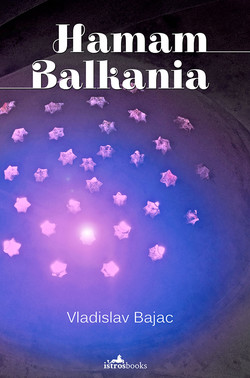Читать книгу Hamam Balkania - Vladislav Bajac - Страница 19
На сайте Литреса книга снята с продажи.
ОглавлениеNumbers applied to literature and books sometimes take on humorous characteristics and bring about absurd consequences. At a recently held local book fair, the organiser published a ranking of all the participants in the national press. There were a lot of things written in that missive, but the only thing that was not were the criteria used to rank the publishers: they were the ‘best’ of something, but no one knew at what. And then, after serious analysis and search for the reasons for not citing the essential criterion, it became clear that this detail was not even important as long as they were the ‘best’.
The time has come, or the place has been reached, for me to quote myself from the beginning of this book: ‘history loves the largest, the strongest, the most powerful and everything the most. This book, however, has a different purpose…’
That is why this book remains in the margins, on a side-track, while history allows the eternal values of popular ranking to be set alongside its stolid and dignified monuments. The popular stage2 is sly, it uses the weakness of history to reward all sorts of victors (even toward the fake, insignificant, grotesque...), and thus easily snuggles up to it. It whispers compliments to history that skilfully help win its heart. And charm is part of the place from where one speaks: in the so-called popular entertainment business, that place is called a podium, and in political activities – the stage.
It was only the social and economic transition process of individual European states that finally showed the dangerous similarity between politics (as future history) and popular entertainment skills (as the eternal now). That similarity, tried, tested and carried to the level of perfect impudence, or impudent perfection, proved to be the ideal union of forces joined against the book. Catchwords were quickly created, along with the interfacing of populism and elitism. And since it was selectively intended for a small number of people, it worked against democracy which is, it goes without saying, intended for a large number of people, if not for everyone. There you have it – transitional dialectics!
The fact that, included in world heritage, there are books that arrive in the present from the past which are certain to survive in the immediate and perhaps distant future, only solidified the positioning of the attacker and the argument for the long-lasting.
The battle between the day-long and even slightly longer turned into the battle of the loud against the quiet (the latter being that way because of proper upbringing and not because of fear), the voice of secrecy against the vox populi, of insult versus tolerance, of the aggressive against the customary, of war against peace.
Who will achieve victory? Well, the victors.
Hopefully we’ve learned that much.
